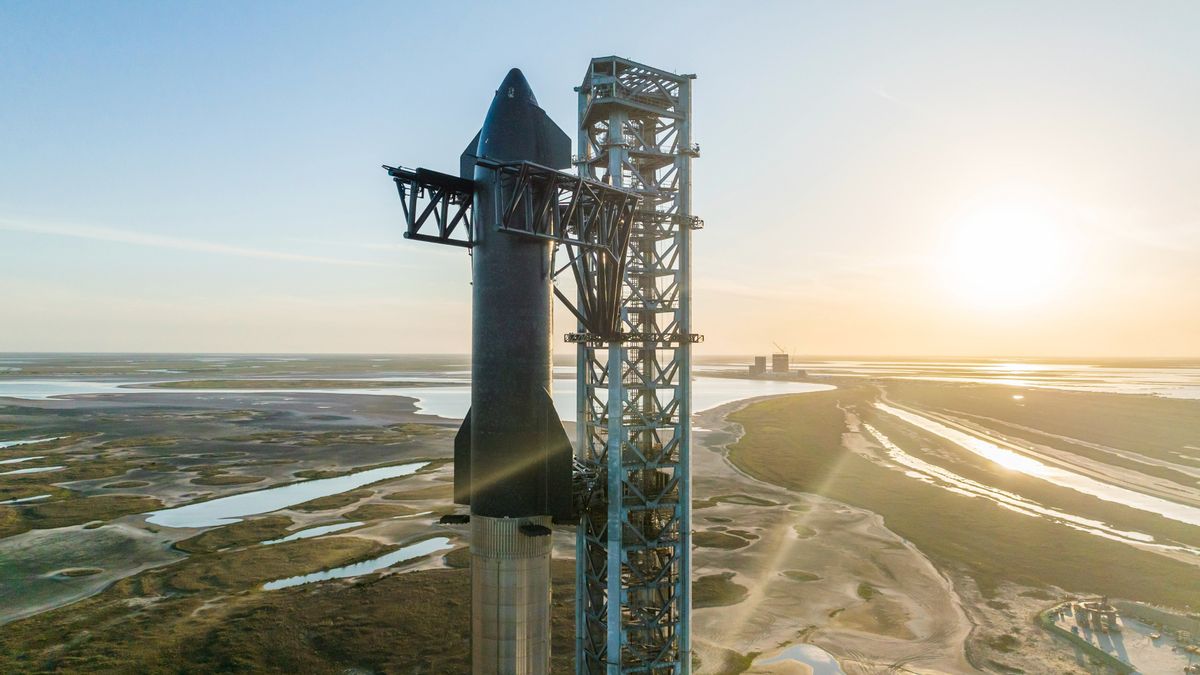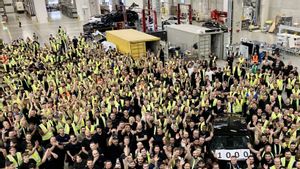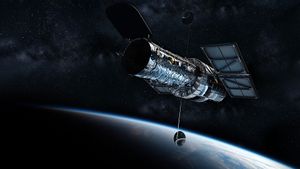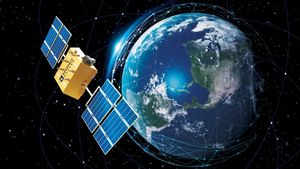JAKARTA – SpaceX's Starship spacecraft will operate like a giant flying Pez dispenser on some missions, if all goes according to plan.
When online, Starship will be the largest and most powerful space transportation system ever built. Meanwhile SpaceX is developing vehicles to carry people and cargo to the moon and Mars and to perform various other spaceflight tasks. Including deploying the next generation version of Starlink internet satellite.
The Starlink spacecraft is currently launched by SpaceX's Falcon 9 rocket. But the Starlink 2.0 satellites will be much more capable and much larger, each weighing about 1.25 tons (1.130 kilograms) on Earth, compared to about 660 pounds (300 kg) for Starlink's current craft.
That's too much cargo for the Falcon 9 to handle, at least in the large-batch shipments SpaceX prefers. Because each Falcon 9 mission launches 50 to 60 Starlink satellites.
"Starship is the only plane that can carry the Starlink 2 satellite," SpaceX founder and CEO Elon Musk said in an interview with Tim Dodd of Everyday Astronaut.
"The Falcon doesn't have the volume or mass-to-orbit capability required for Starlink 2," Musk added. This may refer to the Falcon 9 rocket and its more powerful cousin, the Falcon Heavy.
Starship itself will deploy the massive Starlink 2 satellite in Earth orbit, as in a video presentation Musk gave SpaceX employees last week. The 2-minute video, which Musk posted on Twitter on June 5, shows Starlink emerging through a thin slot near the top of the Starship spacecraft.
Starship will consist of two reusable elements. A large first-stage booster called Super Heavy and a top-tier spaceship called Starship.
VOIR éGALEMENT:
In the animation, the Starship looks a lot like a large, shiny Pez dispenser, as one of Musk's Twitter followers has pointed out. The billionaire seems to agree very much with that comparison.
"Maybe we should build an actual Starship model handing out pez for our merchandise store," Elon Musk tweeted.
SpaceX is gearing up for a major moment in the development of Starship, the first orbital test flight system, which the company intends to carry out in the next few months from its South Texas facility Starbase.
That launch won't happen until the US Federal Aviation Administration (FAA) completes a Starbase environmental review. The review was originally expected to be completed by the end of 2021, but the FAA has pushed back its completion date several times. But now the FAA has finally approved the launch from Starbase, which will mark SpaceX's massive and independent mission to launch the even bigger Starlink 2.
The English, Chinese, Japanese, Arabic, and French versions are automatically generated by the AI. So there may still be inaccuracies in translating, please always see Indonesian as our main language. (system supported by DigitalSiber.id)


















